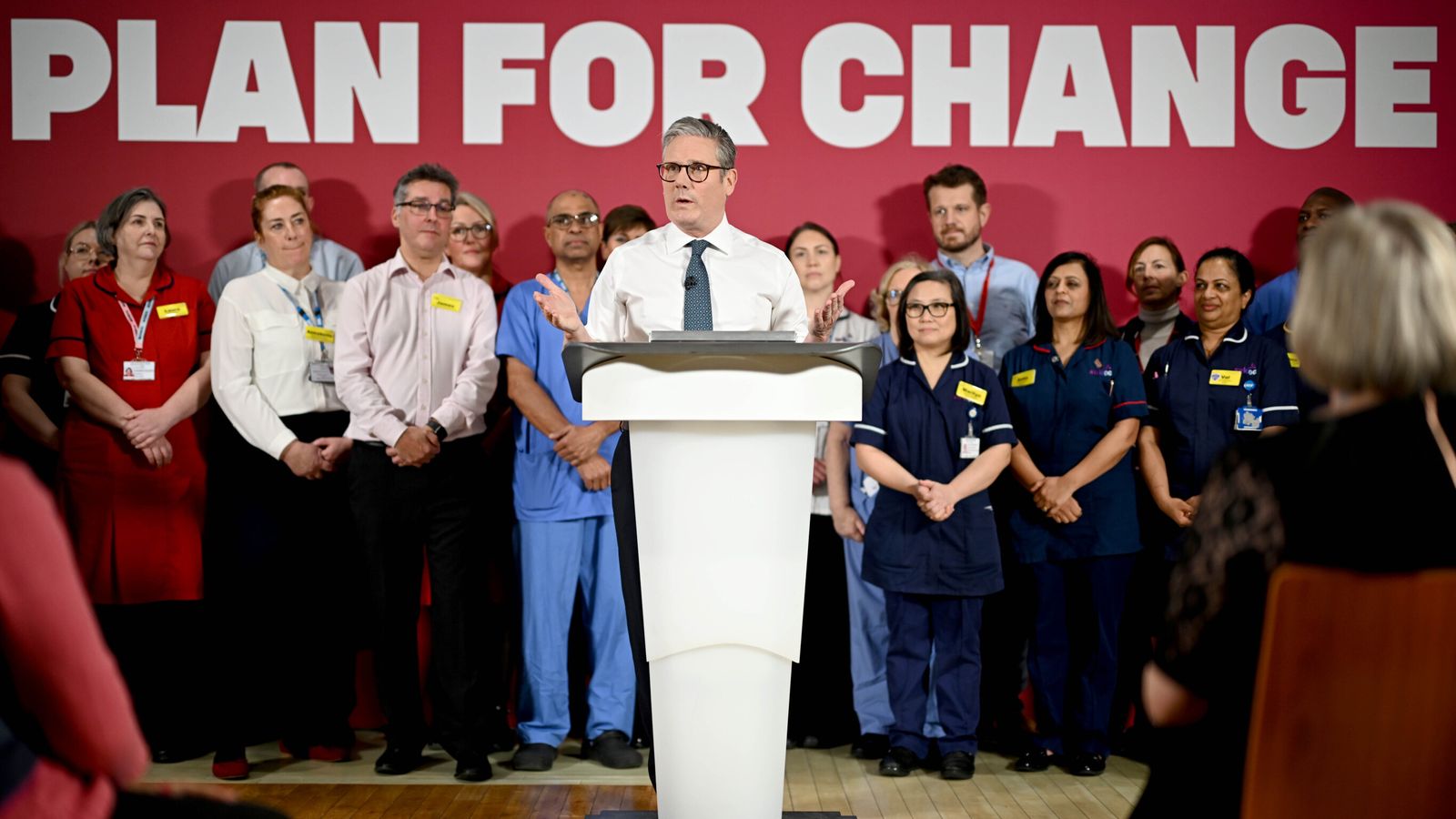Politics
Extra two million NHS appointments in Labour’s first five months, figures show

A Milestone in NHS Recovery: Labour’s Progress in Healthcare
The National Health Service (NHS) in England has reached a significant milestone under the Labour government, as new figures reveal that nearly 2.2 million additional elective care appointments were delivered between July and November 2024 compared to the same period the previous year. This achievement marks a step forward in Sir Keir Starmer’s plan to address the long-standing challenges facing the NHS. The additional appointments include crucial treatments such as chemotherapy, radiotherapy, endoscopy, and diagnostic tests. This progress has been attributed to several factors, including the end of NHS strikes, increased staffing with workers taking on extra weekend and evening shifts, a successful flu vaccination program, and a significant investment of £1.8 billion into elective care since Labour took office.
Delivering on Promises: Reduced Waiting Lists and Expanded Care
The success of Labour’s strategy is further highlighted by the reduction in NHS waiting lists. In December 2024, the number of people waiting for elective care fell for the fourth consecutive month, signaling a positive trend. While the total number of patients waiting for treatment remains high at approximately 7.46 million, the fact that this figure is decreasing is a promising sign. Additionally, the number of individuals waiting more than a year for treatment has also begun to decline. These improvements demonstrate that Labour’s commitment to fixing the NHS is yielding results, with the government meeting its manifesto pledge of delivering two million additional appointments per year seven months ahead of schedule.
Addressing Ongoing Challenges: Pressure Points in the NHS
Despite these achievements, significant challenges remain within the NHS. One critical issue is the rising number of patients facing long waits in Accident and Emergency (A&E) departments. In January 2025, over 60,000 patients experienced waits of 12 hours or more after a decision to admit them had been made—a situation often referred to as "trolley-waits." This issue, which was virtually non-existent before the COVID-19 pandemic, is indicative of broader pressures in the system. The lack of available hospital beds and an overwhelmed social care system, which often prevents patients who are medically fit from being discharged, continue to strain the NHS. Health Secretary Wes Streeting has acknowledged that health anxiety, rather than emergencies, is a growing cause of A&E congestion.
A Plan for Change: Innovation and Investment in the NHS
To address these challenges, the Labour government has outlined a comprehensive plan to further improve the NHS. Key initiatives include the opening of new surgical hubs and community diagnostics centers, which will operate during evenings and weekends to increase accessibility. Additionally, the government plans to utilize private sector capacity to reduce waiting times from 18 months to 18 weeks for elective treatments. Health Secretary Wes Streeting emphasized that these measures are designed to end the "agony of millions of patients suffering uncertainty and pain" and to put the NHS on a sustainable path to recovery. By ending strikes, investing in staff, and introducing reforms to working practices, the government aims to create a more efficient and responsive healthcare system.
Incentivizing Improvement: Rewarding Progress in NHS Trusts
To drive further progress, the government has announced a £40 million funding pot for NHS trusts that demonstrate the most significant improvements in reducing waiting times. This funding, which will be available from next year, can be used for critical capital projects such as repairing hospital facilities or purchasing advanced technologies like AI scanners. While Sir Keir Starmer had previously promised additional funding for high-performing trusts, the exact allocation criteria and details of the scheme will be announced in due course. This initiative aims to incentivize innovation and excellence within the NHS, ensuring that the benefits of increased investment are felt across the country.
A Commitment to Quality and Equality: The Road Ahead for the NHS
Sir Keir Starmer and his government have made it clear that while the recent milestones are cause for optimism, there is still much work to be done. The prime minister stressed that the NHS is on its way to recovery but acknowledged that complacency is not an option. Labour’s vision for the NHS is not only to reduce waiting times but also to ensure that all patients receive the care they need in a timely and equitable manner. By combining targeted investments, innovative solutions, and a renewed focus on staff and patient needs, the government is laying the groundwork for a more resilient and sustainable healthcare system. As the NHS continues to navigate the challenges of the post-pandemic era, the progress made so far serves as a testament to the potential of coordinated effort and ambition.


















